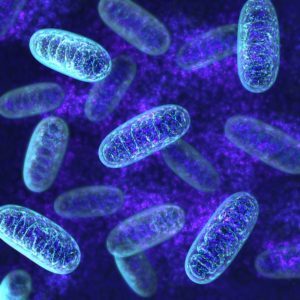What is your Gut Microbiome and how can it help you Thrive?
The Gut Microbiome is a fascinating topic that has been gaining more attention in recent years, but it has always been there and a part of you. But what exactly is it and why is it important for our health? We will explore some of the basics of the gut microbiome, how it affects our body health, functions, processes, lifestyles, urges and what we can do to keep it balanced and healthy.
What is the Gut Microbiome?
Picture a bustling city on a weekday morning, the sidewalks flooded with people rushing to get to work or to appointments, jobs, schools, shopping etc. Now imagine this at a microscopic level and you have an idea of what the microbiome looks like inside our bodies, consisting of trillions of microorganisms (also called microbiota or microbes) of thousands of different species. These include not only bacteria but fungi, parasites, and viruses. In a healthy person, these “bugs” coexist most fully peacefully, with the largest numbers found in the small and large intestines but also throughout the body. To many the microbiome is even labeled a supporting organ because it plays so many key roles in promoting the smooth daily operations of the human body including, but not limited to, processing nutrients and helping with our immune system’s jobs and functions.
Each person has an entirely unique network of microbiota that is originally determined by one’s DNA. A person is first exposed to microorganisms as an infant, during delivery in the birth canal and through the mother’s breast milk. Exactly which microorganisms the infant is exposed to depends solely on the species found in the mother. Later on, environmental exposures, stress, diet and lifestyle can change one’s microbiome to be either beneficial to health or place one at greater risk for disease.
The gut microbiome consists of microbes that are both helpful and potentially harmful. Most are symbiotic (where both the human body and microbiota benefit) and some, in smaller numbers, are pathogenic (promoting disease). In a healthy body, pathogenic and symbiotic microbiota coexist without problems. But if there is a disturbance in that balance—brought on by infectious illnesses, certain diets, or the prolonged use of antibiotics or other bacteria-destroying medications—dysbiosis occurs, stopping these normal interactions. As a result, the body may become more susceptible to disease.
How microbiota benefit the body
Microbiota stimulate the immune system, break down potentially toxic food compounds, and synthesize certain vitamins and amino acids, including some of the essential ones that our bodies cannot produce on their own. They also help regulate metabolism and influence gene expression. There is evidence that microbiota may affect our mood and behavior by producing neurotransmitters and hormones or by interacting with the nervous system.
How to maintain a healthy gut microbiome
The diversity and composition of our microbiome are influenced by many factors, such as genetics, age, lifestyle, environment, and diet. While some of these factors are beyond our control, we can still take some steps to support our microbiome and prevent dysbiosis. Here are some tips:
– Eat a varied and balanced diet that includes plenty of fiber-rich foods, such as fruits, vegetables, some legumes, nuts, and seeds. Fiber feeds the beneficial bacteria in our gut and helps them produce short-chain fatty acids that have anti-inflammatory and protective effects on our health. The closer to the ground or harvest the better and less processed and modified, the better.
– Consuming quality vitamins and minerals can also have a positive impact on your gut. Feeding the body, gut and microbiome what it needs can help it to be healthy and vibrant.
– Intermittent fasting can give your gut a chance to rest and heal. Just like your other organs and giving your gut a break several times a week or even daily can be beneficial. You can start slow and work your way to longer durations. Metabolic flexibility is key to a healthy body.
– Avoid or limit foods that are high in sugar, fat, salt, or additives, as they may disrupt the balance of our microbiota and promote inflammation. Inflammation has consequences to your body and its processes, especially over long periods of time, and may be a major contributor to chronic illnesses.
– Consume fermented foods that contain live cultures of beneficial bacteria, such as sauerkraut, kimchi, miso, tempeh, kombucha, etc. These foods, in general, can help replenish our gut flora and enhance their functions.
– Take probiotics and prebiotics if needed or recommended by your doctor. Probiotics are supplements that contain live microorganisms that can colonize our gut and confer health benefits. Prebiotics are substances that stimulate the growth or activity of certain microbes in our gut and can be found in quality fiber. However, not all probiotics or prebiotics are equally effective or suitable for everyone, so consult your doctor before taking them. In fact, a particular blend may be best for you and your demands.
– Avoid unnecessary use of antibiotics or other medications that can kill or harm our microbiota. Antibiotics are lifesaving drugs that can treat bacterial infections, but they can also wipe out many of the good bacteria in our gut along with the bad ones. This can lead to dysbiosis and increase the risk of infections by antibiotic-resistant bacteria or other pathogens. Therefore, only use antibiotics when prescribed by your doctor and follow their instructions carefully.
– Exercise regularly and manage stress levels. Physical activity can improve blood circulation and oxygen delivery to our organs, including our gut. It can also modulate our immune system and reduce inflammation. Stress can negatively and substantially affect our gut health by altering its motility, permeability, secretion, and microbial balance. Finding healthy ways to cope with stress, such as meditation, yoga, breathing exercises, hobbies, etc., can benefit our microbiome and overall well-being.
Balance Is Key!
As always, your body works best when it is in balance between its processes, systems, and ways. Your gut microbiome is a piece of a much larger and complex body that carries out many functions on your behalf. A healthy biome can have a very positive impact on your health and how you feel. It supports and is supported by many functions of the body and works best in unison with the other 120,000 process in play at any given time. Be smart and healthy with your microbiome and it will be good to you across your body and life!

Conditions of poor Digestive Health and Gut Microbiome:
- IBS – irritable bowel syndrome
- UC – Ulcerative Colitis
- Poor Methylation
- Crohn’s Disease
- Poor Gut Microbiome
- Bloating
- Leaky Gut
- Gas
- Low Energy
- Allergies
- Skin Rashes and Issues
- Weight Gain
- Mood Swings
- GERD (reflux)
- Candida
- Yeast Overgrowth
- SIBO and SIFO
- Malnutrition
- Diarrhea
- Ulcers
Nutraceutical Store – Digestive Health Nutraceuticals
Blog:
Naturopathic, Holistic and Integrative Approach to Digestive Health and Disease
HOW WE HELP
A Naturopathic, root cause and integrative approach allows us to identify other impacts to your Gut Microbiome and body’s health.
As part of your personalized care, you will be seen Naturopathic Doctor who is also a Licensed and Registered Dietitian.
I did not understand the importance of the gut when it came to the rest of my body and health. This approach has helped me return to normal and Thrive again.– S.I.E.Medical Patient






